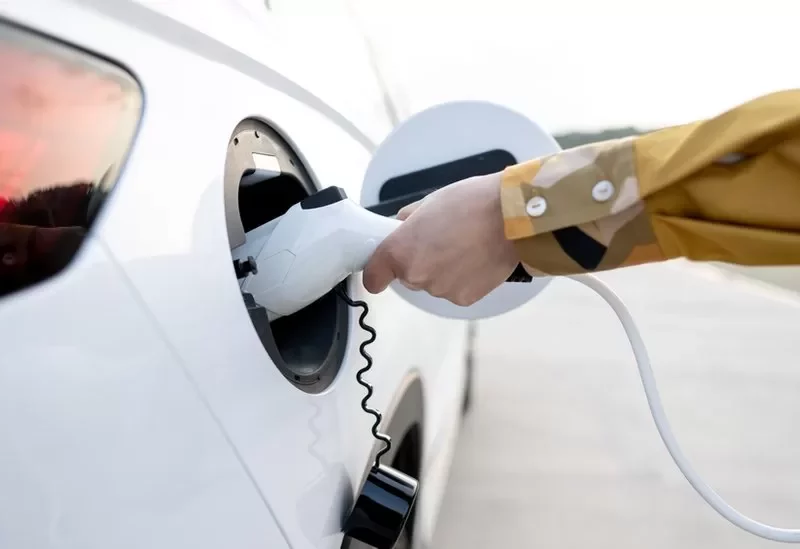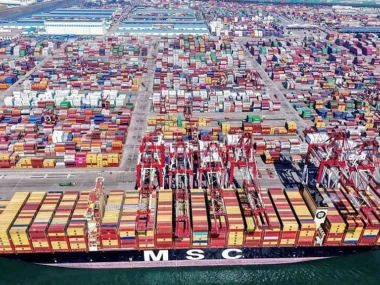According to an industry organization, recently introduced post-Brexit trade regulations regarding electric vehicles might lead to European manufacturers incurring expenses of £3.75 billion in the coming three years.
The regulations have been introduced to ensure that electric vehicles produced in the EU predominantly use locally sourced components. However, manufacturers on both sides of the English Channel have expressed their lack of preparedness for these rules. The European Automobile Manufacturers Association (ACEA) has also cautioned that these measures could lead to a decrease in output from EU factories by 480,000 vehicles, ultimately impacting customers.
The primary challenge revolves around the “rules of origin,” set to take effect in January. These rules apply to car shipments between the UK and the EU under the terms of the Brexit deal, known as the UK-EU Trade and Cooperation Agreement. Essentially, they require electric vehicles to incorporate batteries produced either in the UK or the EU. Vehicles failing to meet this criteria will face a 10% tariff when transported across the Channel in either direction.
Originally designed to safeguard the European industry from low-cost imports, these rules have encountered difficulties due to slower-than-expected growth in battery production in Europe. European manufacturers are struggling to adhere to the new requirements, which is particularly concerning as the UK represents their largest export market, with 1.2 million vehicles arriving at UK ports last year. Likewise, more cars manufactured in the UK are shipped to the EU than any other region.
The imposition of steep tariffs could raise the production costs of electric cars and potentially lead to higher prices for consumers. The ACEA is advocating for a three-year delay in implementing these new rules and is urging the European Commission to take action. Renault’s CEO, Luca de Meo, who also serves as ACEA’s president, expressed concerns that driving up the prices of European electric vehicles when they need to compete globally would be detrimental, potentially ceding a significant portion of the market to international manufacturers.
- Companies are still under pressure to increase the sales of electric vehicles.
- The Prime Minister has postponed the ban on petrol cars, signaling a change in government policies related to environmental initiatives.
In order to delay the implementation of these rules, a consensus would have to be reached through negotiations between the UK and the EU. Kemi Badenoch, the UK’s Business Secretary, expressed optimism last week about the possibility of such an agreement being reached.
However, in an interview with the Guardian on Friday, Thierry Breton, the EU’s internal market commissioner, was less receptive to the idea. He emphasized that reopening the Brexit deal to accommodate the motor industry would be inappropriate, asserting that once something has been negotiated, it should not be subject to change.

The European Commission has acknowledged that Brexit has altered the trade relationship between the UK and the EU. They emphasized that the EU-UK Trade and Cooperation Agreement resulted from negotiations in which both parties agreed to a balanced set of commitments. Furthermore, the rules of origin are intended to strengthen and establish a resilient battery value chain within the EU.
Sigrid de Vries, the Secretary General of ACEA, noted that encountering resistance in their appeals was not unexpected. She explained that the European Commission appears reluctant to make changes to Brexit-related matters due to their political sensitivity. She clarified that they are not seeking to fundamentally alter any of these arrangements.
On the other hand, Mike Hawes, CEO of the UK’s Society of Motor Manufacturers and Traders, expressed optimism about the possibility of a deal being reached but suggested it might occur at the last minute, drawing parallels to the Brexit negotiations that extended to Christmas Eve.
Trade officials from the EU and the UK are scheduled to meet in London this week, although it remains unclear whether the new rules will be on the agenda.











